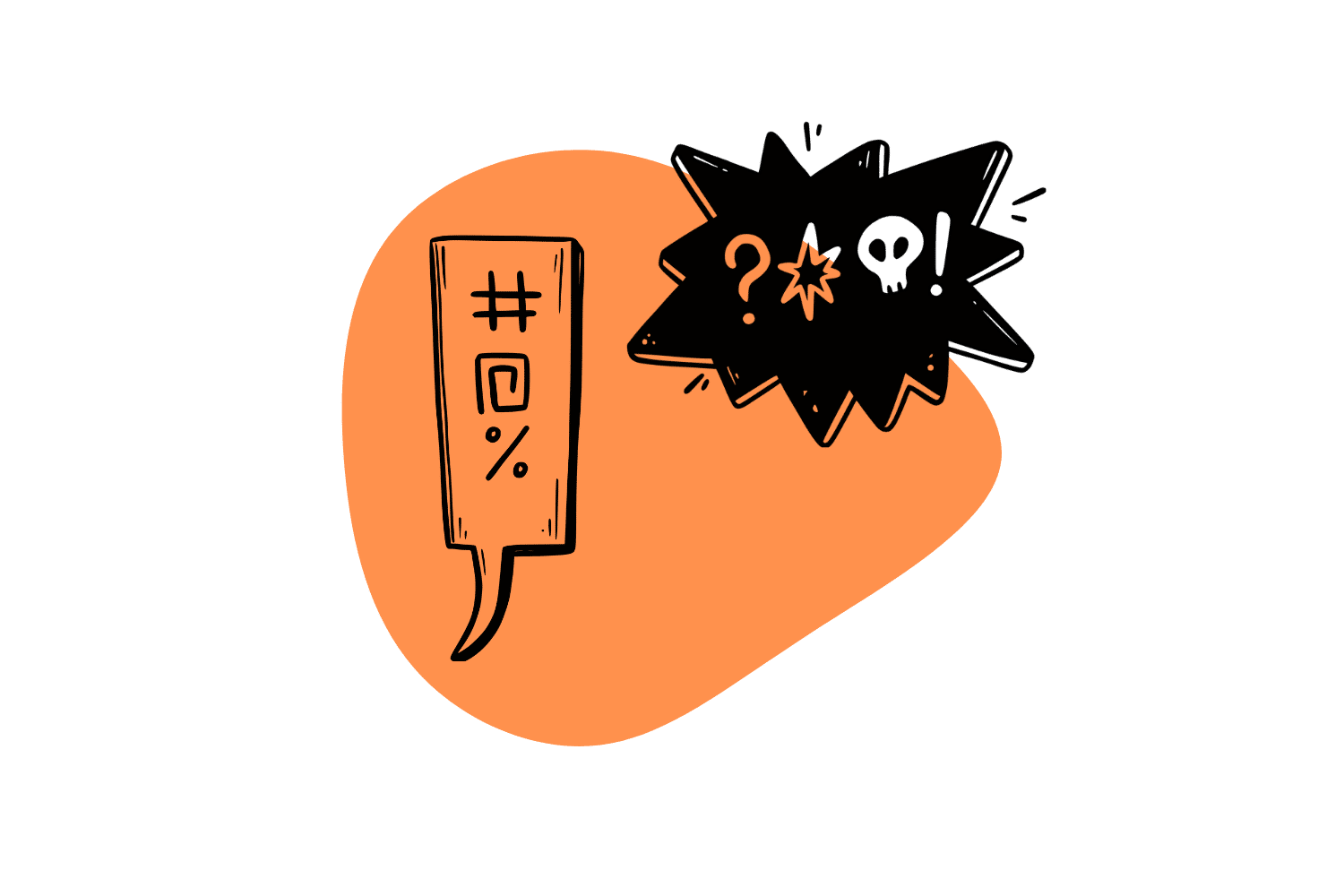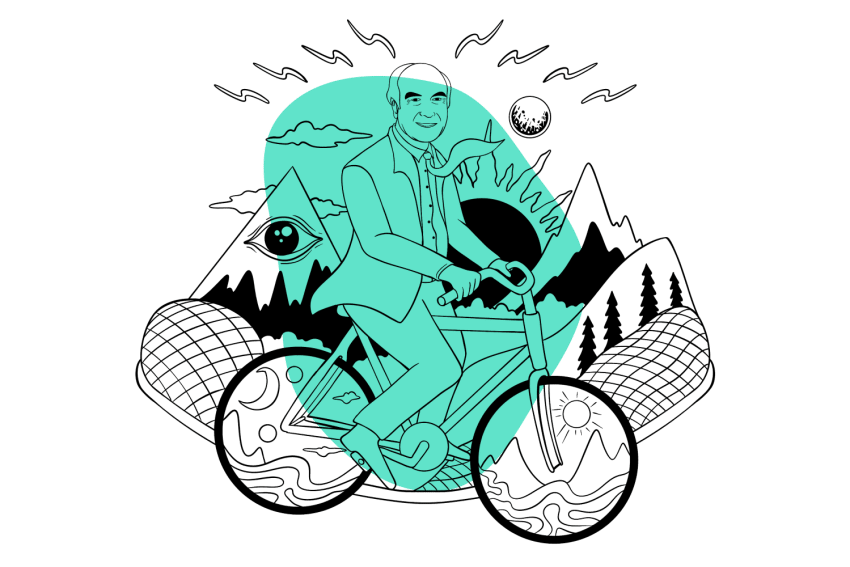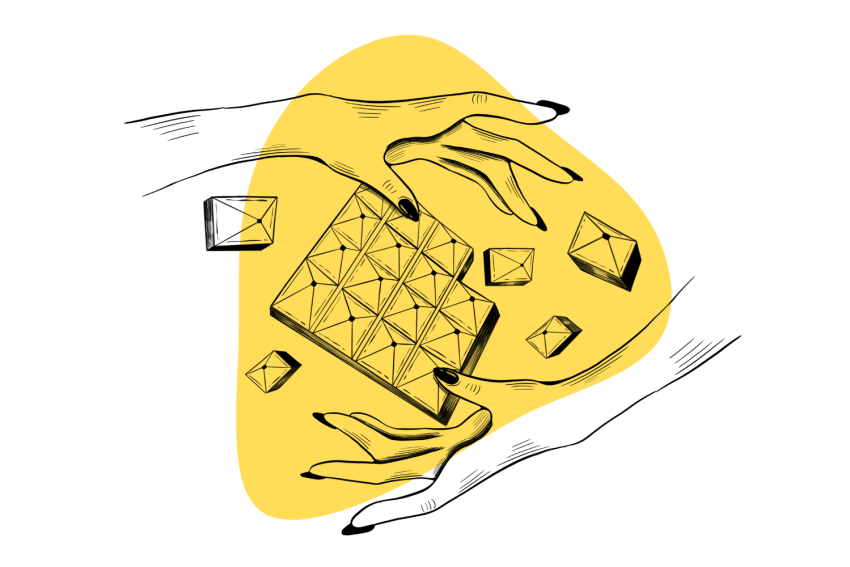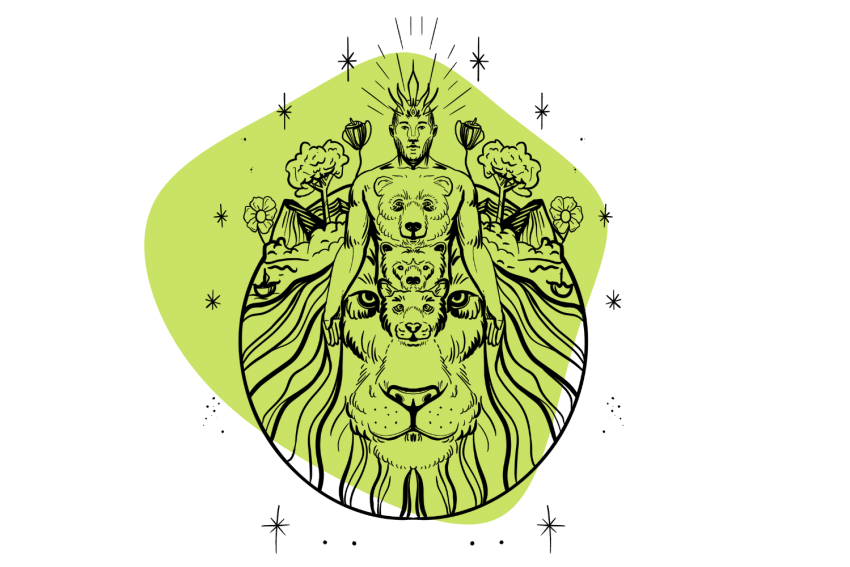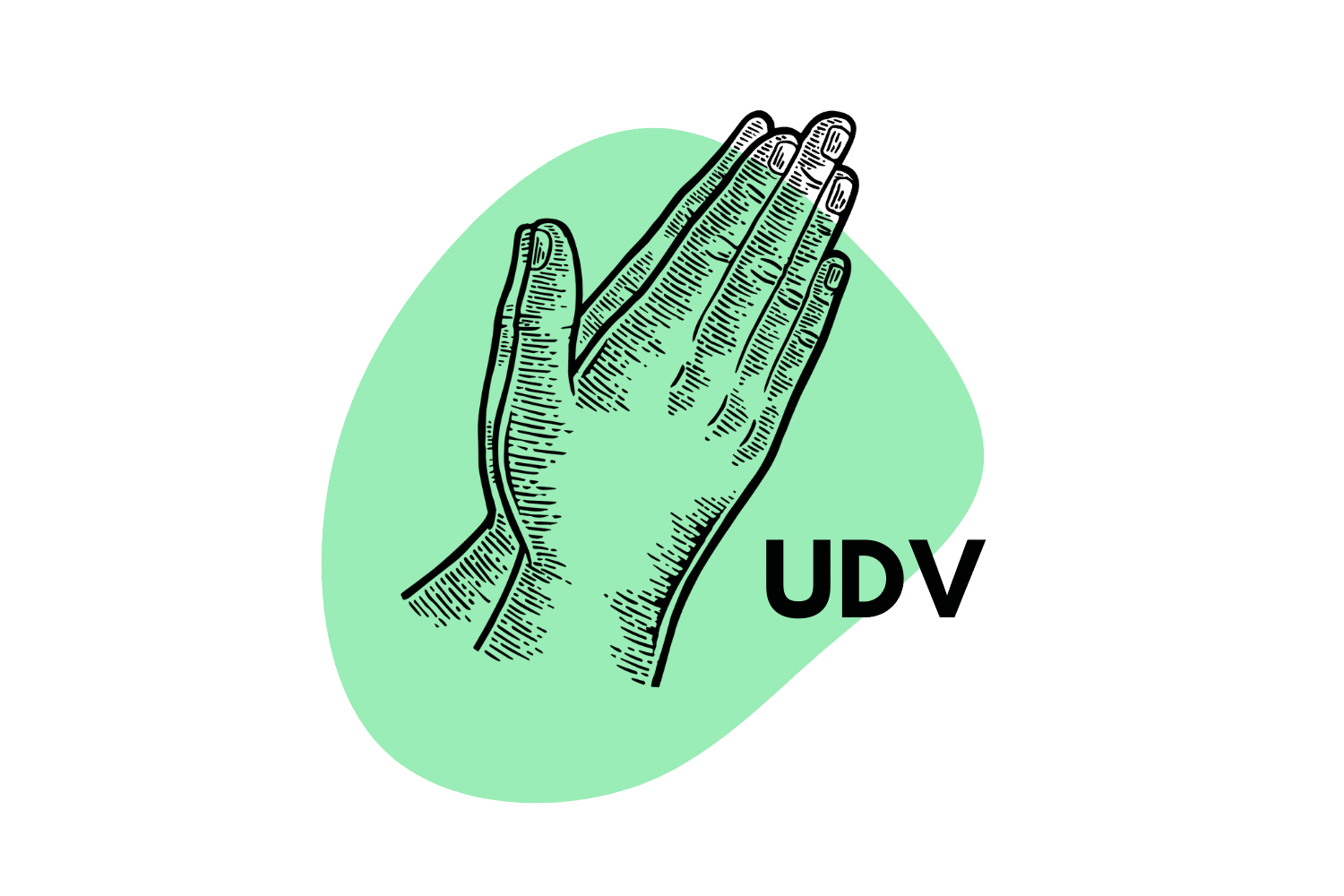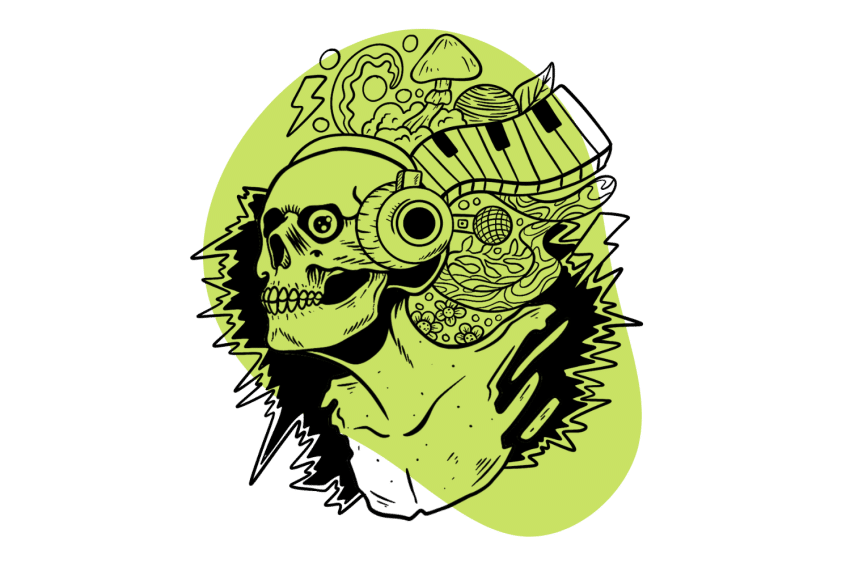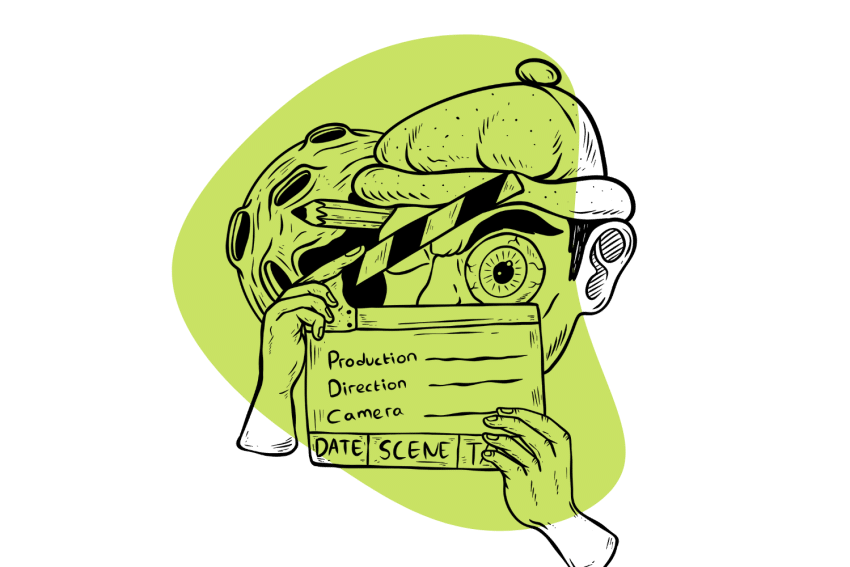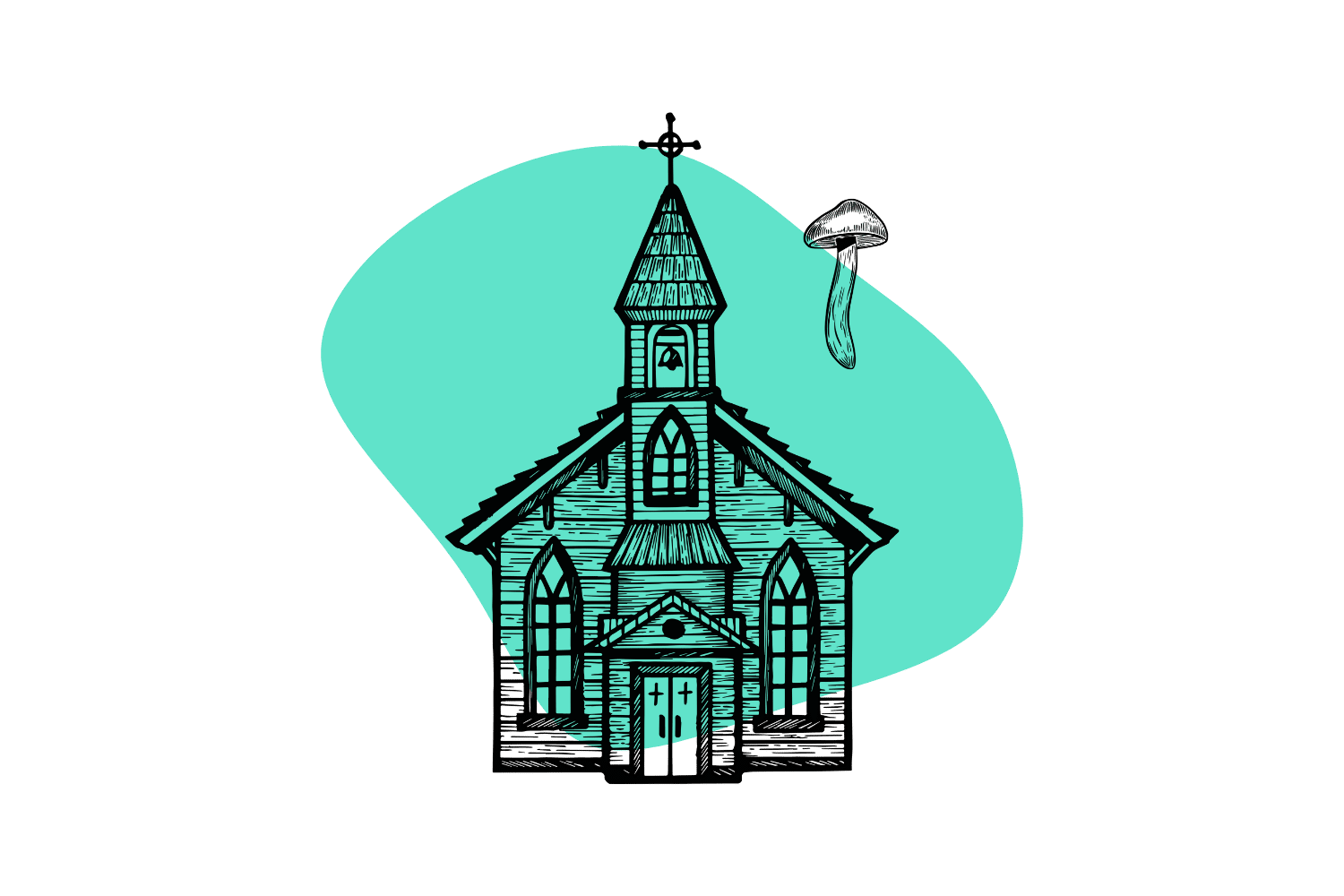Is It Necessary to Have a Mystical Experience With Psychedelics?
Consistently and reliably creating mystical experiences is something psychedelics alone can accomplish. Advancements in psychedelic research point to the potential usefulness of these occasions for spurring or enforcing change, but how important are they really?
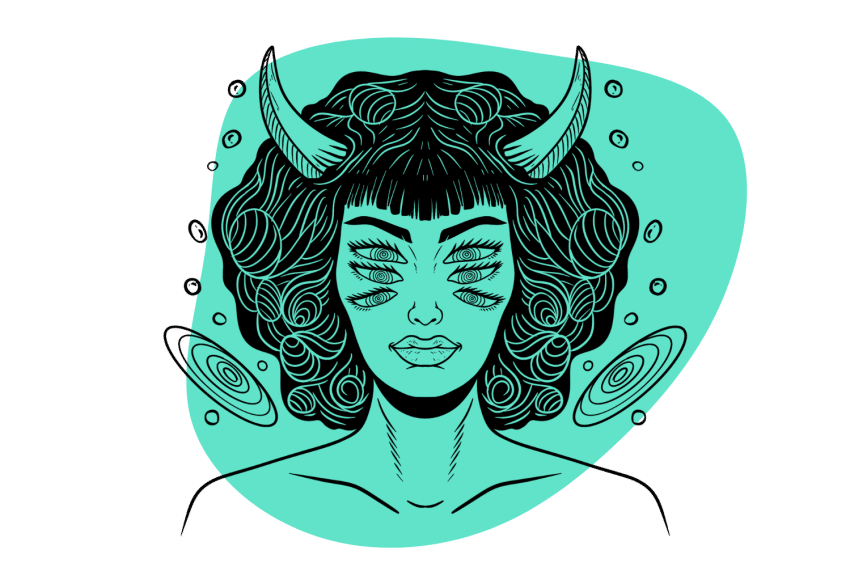
One of the biggest things psychonauts will tell you when trying to explain an experience on psychedelics is, “I can’t put it into words.” This characteristic — “ineffability” — is a defining feature of so-called “mystical experiences.”
Initial research is pointing to the potential importance of these events for ensuring success in clinical outcomes, but there’s a lot we still don’t know.
Here’s a snapshot of what we do know:
- Within small trials, the mystical experience seems to correlate with successful outcomes. These trials often utilize imperfect methods on small sample sizes and rarely offer more than a few dosing protocols or therapeutic procedures.
- Mystical experiences from psychedelics result from several factors — pharmacological, mental, and more. Higher dosages may improve the chances of a mystical experience, but drugs are hardly the only thing to cause them. While we can prepare for mystical experiences, we can’t guarantee them.
- Having a mystical experience doesn’t automatically improve someone, and it’s not inherently a better way to approach psychedelics. Seeking psychedelics for mystical experiences without incorporating the messages into your life is a form of spiritual bypassing.
Let’s break this down and see if we can better understand this phenomenon, along with some frequently asked questions.
How Important is the Mystical Experience with Psychedelics?
People use psychedelics for a variety of reasons — recreational, spiritual, and mental health being the main ones. While spiritual uses of psychedelics obviously rely on the mystical experience, some clinical trials also point to its usefulness in psychotherapy [1].
Recreational use of psychedelics is a different story — some people enjoy the mystical element, and others may prefer a laid-back, slightly elevated experience. With proper preparation, respect for your psychedelic drug of choice, and harm reduction measures, any of these uses of psychedelics could be enjoyable.
While initial findings point toward the mystical experience as having a causal effect, it could also be various other factors. Another paper highlighting the correlation between positive outcomes and mystical experiences includes this statement:
Emotional insight/breakthrough or catharsis; priming and suggestibility; reliving of trauma/defining life events; insights about the self and relationships; the patient’s relationship to music heard; his/her success at “letting go”; the quality of therapeutic relationship; and the degree of “closure” attained during post-drug integration work [2]
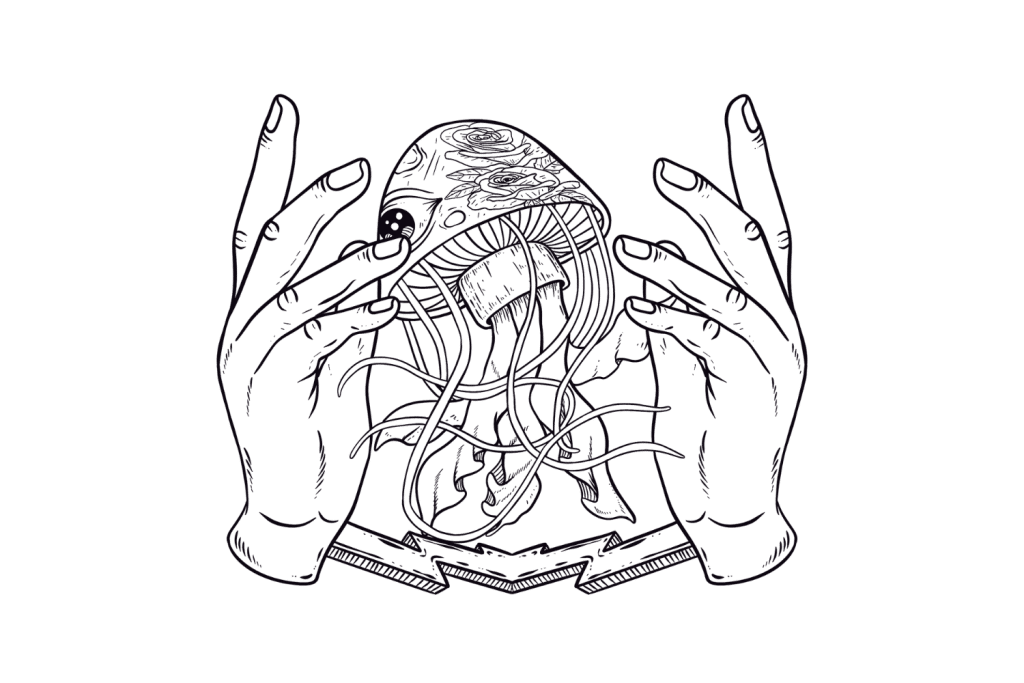
Any of these — or a delicate mixture of some, several, or other elements — could provide an underlying key to success. The presence of a mystical-type experience may bolster the benefits of psychedelic-assisted psychotherapy, but, as of yet, we don’t have proof of it being a “requirement.”
Research is in its infancy and has only studied a few variations in therapeutic settings, dosages, and more. We might discover — if we ever find a financial incentive to research it — low-to-moderate doses, along with several sessions of therapy, is more impactful than a single experience the participant must decode and integrate into their life.
For many, the mystical effects of psychedelics are — rightfully — one of their favorite components of a trip. While enjoyable and maybe even beneficial, this doesn’t necessarily make it critical.
What Is a “Mystical Experience” Within a Clinical Setting?
Mystical experiences appear differently for everyone and are notoriously difficult to put into words. To standardize data and experiences, researchers developed a 30-item Mystical Experience Questionnaire (MEQ30) [3].
Participants use a scale of 1–5 to rate several “mystical” factors from their experience. Some are straightforward, but others seem closer to true/false questions. In what circumstance, for example, would you rate your “experience of unity with ultimate reality” as a 3?
Could you experience a small amount of “being in a realm with no space boundaries?” What about “experience the insight of ‘all is one?’”
The MEQ30 is a great research tool but a part of the mystical experience will always be ineffable for the same reasons it feels mystical. Furthermore, with so many subjective experiences feeling like an “all-or-nothing” effect for participants, this may skew data through an excessive amount of 1s or 5s.
Still, this is likely our best assessment to date for qualitatively showing someone underwent a mystical experience.
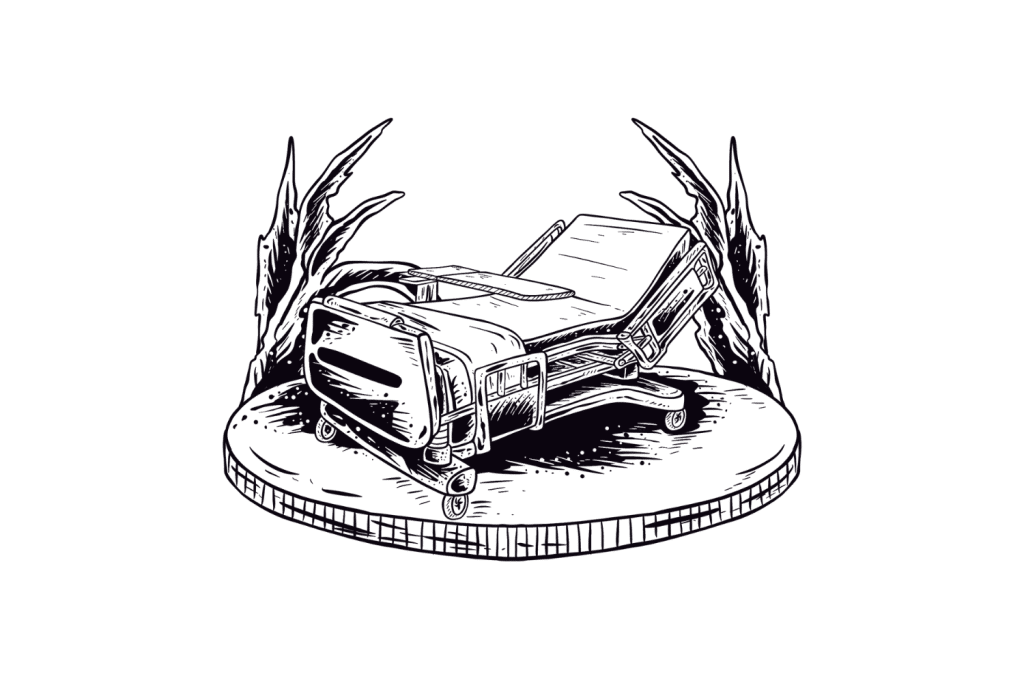
How Did Researchers Design the MEQ30?
The 30 questions that made it onto the MEQ30 flow from several other attempts to describe the indescribable. W.T. Stace was the first to attempt this in his 1960 masterpiece Mysticism and Philosophy [4].
Stace’s distinction between the introverted and extroverted mystical experiences — or mystical experiences within ourselves vs. those in which we feel a connection with all — is a major element of questionnaires to this day. He also noted six other key factors of the mystical experience:
- A sense of sacredness
- “Noetic” quality — or a sense of receiving information you otherwise wouldn’t have access to
- Deeply positive feelings
- Ineffability
- Paradoxicality — or “a disregard for the commonly accepted laws of logic” and a feeling you can’t describe your experience because it confounds communication
- Transcendence of time and space
Roughly 15 years later, Ralph Hood Jr. would use the “conceptual categories” from Stace’s work “as a framework for generating scale items” with the first questionnaire of this kind. The so-called m-scale [5] would morph into the MEQ30 we have today, still utilizing all of Stace’s foundational work.
A “complete mystical experience,” according to researchers, is any experience scoring above 60% of the maximum score on this chart (or 90/150.)
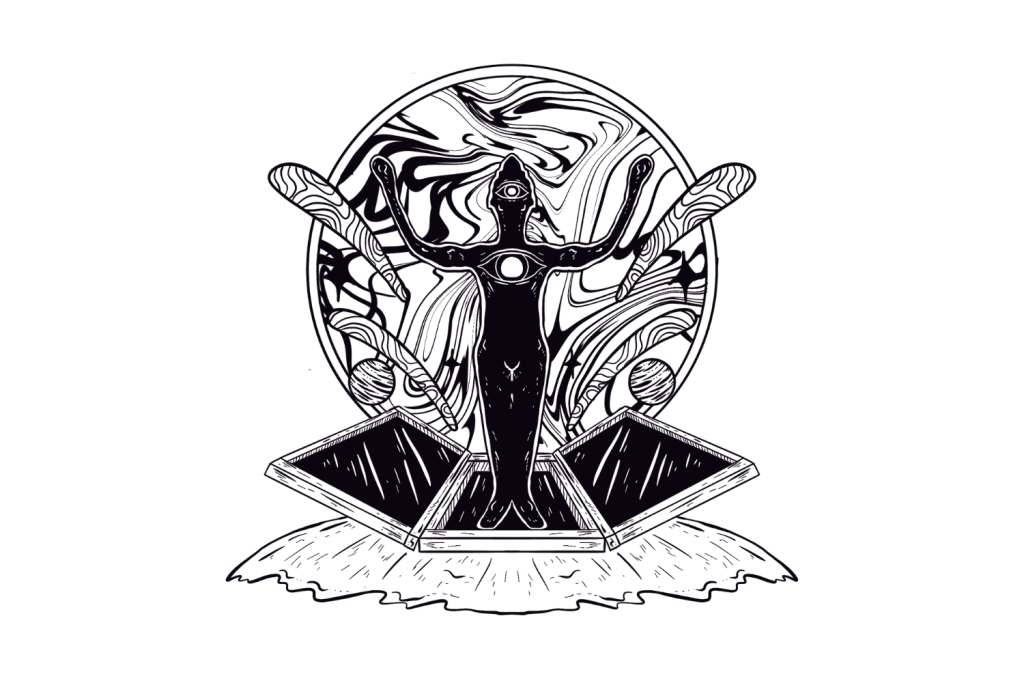
What Causes a Mystical Experience on Psychedelics?
We frequently tie mystical experiences to a particular religion or ideology, but anyone can have a mystical experience — religious or not [6]. As one study puts it:
[T]he mystical experience is not, in and of itself, simply the experience of religious or spiritual insight … Mystical experiences are defined as a self-reported experience of unity accompanied by the additional dimensions of experience as outlined by Stace [3].
The three biggest contributory factors to encouraging a psychedelic experience include:
- Preparation, mindset, and setting — Openness to an experience and a framework for what you want to do with it can help encourage a mystical experience. Conversely, attempting to dull or escape the experience can cause a “bad trip” and prevent the mystical elements of the trip.
- Pharmacological effects of serotonergic substances — While research is non-conclusive, psychedelic interaction with our default mode network, serotonin receptors [7], and/or increasing the randomness of our thought patterns [8] could contribute to the mystical experience.
- Dosage — Smaller doses have different effects from larger ones, and a mystical experience on lower doses is unlikely. However, it’s possible low doses, along with meditation or introspection, could achieve a similar effect, but we don’t currently know.
All, some, a mixture of the three, or none of these could contribute to the mystical experience. By appropriately managing the elements within your control — dosage, preparation, and environment — you can greatly improve your chances of having a mystical experience.
Two Paths: Oceanic Boundlessness and Dread of Ego Dissolution
While elements of psychedelics may enhance or encourage mystical experiences, these same qualities could exacerbate bad trips. Though it’s an imperfect model [9], the 5 dimensions of altered states of consciousness (5-D ASC) survey showcases different potential mindsets on a psychedelic trip [10].
In particular, researchers found two of these states correlate to positive or negative outcomes [11]:
- [POSITIVE] Oceanic Boundlessness (OBN) — Similar to a mystical experience, characteristics of OBN include feeling happy and content without reason, free from responsibility, a floating sensation, openness to the experience, and oneness with your past and future.
- [NEGATIVE] Dread of Ego Dissolution (DED) — As the name suggests, this feeling arises during the process of ego death, when we start to lose our sense of self. Common characteristics include disorientation, confusion around what’s happening, feeling lost or isolated, and not coming to terms with/accepting the experience.
In a sense, these are the “heaven and hell” of psychedelic mysticism realms — with the understanding you’re not necessarily stuck in the one you wind up in.
Researchers don’t refer to the negative side of a trip as “mystical” since their definition of such is inherently positive. Still, within the realm of DED, terrifying thought patterns and images can feel just as awe-inspiring and ineffable in negative ways as the positive ones.
Prep work for psychedelic trips is a direct answer to this concern, providing a framework for the experience and preparing the mind for what’s to come and how you might handle it. Confusion is a big part of DED, and while you can’t eliminate all confusion on a trip, you can arm yourself to combat it through knowledge and experience.
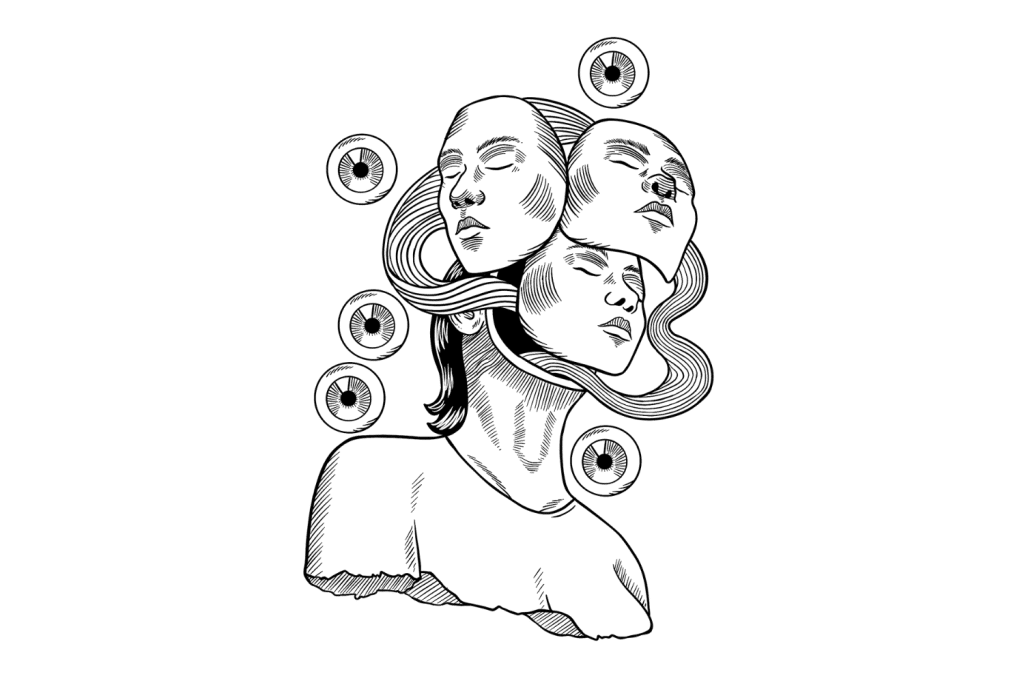
Spiritual Bypassing: When Mysticism Goes Wrong
If you don’t return to life, you aren’t bringing enlightenment back with you — you are merely visiting the place where enlightenment exists. Or, as the Zen proverb puts it:
Before enlightenment, chop wood, carry water. After enlightenment, chop wood, carry water.
While the mystical experience is typically something people seek out, it can become a hindrance. When users seek the experience of mysticism over implementing the messages of those experiences, they run into the danger of spiritual bypassing — or psychedelic bypassing.
Bypassing involves hiding behind the practices or emotions of spirituality to elevate perceived status above others without implementing the messages within your own life. The practice looks for the rewards of spirituality without regard for any of the work.
Within the world of psychedelics, it’s likely even easier than it would be in religion since the substances can produce a reliably mystical experience. As a result, psychedelic enthusiasts face the risk of continually consuming psychedelic drugs and thinking their trip is a lesson in and of itself.
There’s nothing wrong with taking psychedelics for fun, and recreational users don’t necessarily have to integrate every experience. “Psychedelic bypassing” happens when users continually turn to psychedelics recreationally but act or believe they’re more spiritual as a result.
Being religious doesn’t make a person inherently exemplary, and having religious-type experiences doesn’t make a person more spiritual or “elevated” than others. Psychedelics are non-specific amplifiers, and they don’t inherently make a person good (or even better) [12].
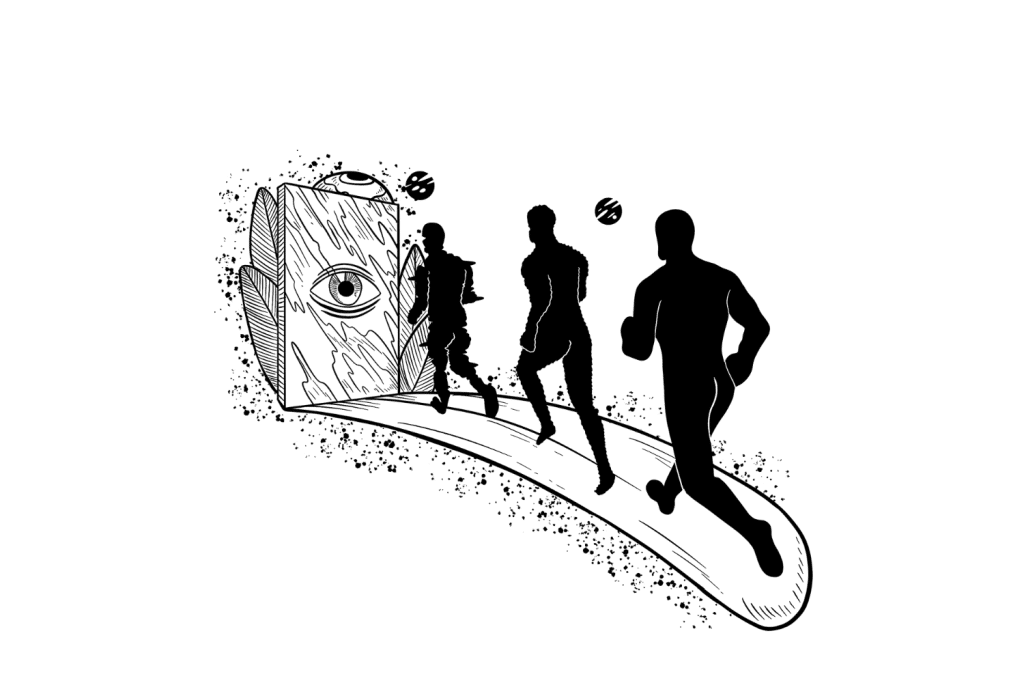
Should You Chase the Mystical Experience?
It depends on your reason for taking psychedelics. If you want to change, improve, or contemplate some element of yourself, the mystical experience may make change more profound — according to introductory research.
Conversely, if you’re planning to use psychedelics recreationally, you may or may not want the mystical experience. While the euphoria of these emotions is often enjoyable recreationally as well, sometimes psychonauts aren’t looking for an experience to floor them.
Psychedelics have profound potential to change deep elements of our personality and being, but they don’t inherently do so. Sometimes, it’s fine to take smaller or moderate doses of psychedelics when you want to work through problems less chaotically or simply watch your favorite trippy movie.
Whether you plan to:
- Take a large or small dose
- Have fun at a concert or meditate through your deepest trauma
- Re-watch Interstellar, timing your peak for the black-hole scene, or listen to classical music in total darkness with a blindfold on
- or any other reason, purpose, and setting you wish to take psychedelics in
The best way to take psychedelics is intentionally, confidently, and knowledgeably.
FAQ: Psychedelics and the Mystical Experience
Here are some frequently asked questions about the mystical experience and psychedelics:
1. Did Indigenous Psychedelic Use Seek Mystical Experiences?
Albert Hofmann and Richard Evans Schultes detailed the connection between psychedelics and indigenous cultures’ attempts to commune with the gods. They wrote the following in Plants of the Gods:
For the Huichol [indigenous peoples] of Mexico, the Peyote cactus (Lophophora williamsii) … is not a plant but a god, a gift from the Earth Goddess to humans to assist them in attaining a connection to her in the mystical realms [13]
Indigenous cultures often looked to psychedelic and intoxicating plants for various reasons. Many — though not all — involved the mystical experience as a part of the healing.
2. Are Psychedelics Effective Without the Mystical Experience?
We don’t currently have nearly enough information to make an informed understanding one way or the other. It does seem as though the mystical experience makes the results more profound in clinical settings, but an either/or mentality might not apply.
While our current focus is on the effects of large doses of psychedelics for certain conditions, we know very little about moderate doses with talk therapy. Not only could psychedelics potentially be more approachable for people if they knew they’d be on low or moderate doses, but it might be more effective to have your wits about you more through a session of therapy.
Another element of the discussion revolves around “psychedelic” drugs without the hallucinatory effect. Research is minimal on the potential for this to help, but it’s likely to be far less effective than simply using moderate doses of established psychedelic drugs.
3. Can You Have Mystical Experiences Without Psychedelics?
Yes! Mystical experiences are common in various non-drug-related practices, and it’s definitely possible to have them without the aid of psychedelics.
Some other methods for seeking mystical experiences include:
- Meditation
- Isolation/Sensory Deprivation
- Near-death experiences
- Breathwork
- Religious gatherings/concerts
4. Are Mystical Experiences Inherently Impactful?
No, mystical experiences are only impactful when we impart lessons from them in our everyday life. Feeling euphoria and experiencing profound introspection can feel life-changing at the time, but if it doesn’t integrate back into your daily routine, its impact is not long-lasting.
Current research evaluating the effectiveness of psychedelics involves clinical sessions before and after to ensure this isn’t the case. For those taking psychedelics at home, this work falls on your shoulders — preparation before a psychedelic journey and integration work after largely determines the impact.
5. What Causes A Rapid Change In Personality?
Psychologist William R. Miller calls “sudden, dramatic, and enduring transformations that affect a broad range of personal emotion, cognition, and behavior” quantum change [14]. According to him, there are two subtypes of these changes:
- The Mystical (Epiphany Type) — May come as the result of a spiritual, dramatic event. “They are transient states of consciousness, usually lasting for only a few minutes and distinctly different from normal consciousness.” Miller doesn’t mention psychedelics directly but cites an unpublished doctoral dissertation from Harvard on the topic [15].
- The Insightful Type — A “noetic element of sudden realization or knowing.” Whether intentional or not, Miller uses the same language as we can find on the ASC scale.
Again, Miller never references drugs directly, but an argument exists for psychedelic-induced capability for both types of quantum change he presents.
References
- Ko, K., Knight, G., Rucker, J. J., & Cleare, A. J. (2022). Psychedelics, mystical experience, and therapeutic efficacy: a systematic review. Frontiers in Psychiatry, 13.
- Roseman, L., Nutt, D. J., & Carhart-Harris, R. L. (2018). Quality of acute psychedelic experience predicts the therapeutic efficacy of psilocybin for treatment-resistant depression. Frontiers in pharmacology, 8, 974.
- Barrett, F. S., & Griffiths, R. R. (2018). Classic hallucinogens and mystical experiences: phenomenology and neural correlates. Behavioral neurobiology of psychedelic drugs, 393-430.
- Stace, W. T. (1960). Mysticism and philosophy. Philosophy, 37(140).
- Hood Jr, R. W. (1975). The construction and preliminary validation of a measure of reported mystical experience. Journal for the scientific study of religion, 29-41.
- Hood Jr, R. W., Morris, R. J., & Watson, P. J. (1990). Quasi-experimental elicitation of the differential report of religious experience among intrinsic and indiscriminately pro-religious types. Journal for the Scientific Study of Religion, 164-172.
- Stenbæk, D. S., Madsen, M. K., Ozenne, B., Kristiansen, S., Burmester, D., Erritzoe, D., … & Fisher, P. M. (2021). Brain serotonin 2A receptor binding predicts subjective temporal and mystical effects of psilocybin in healthy humans. Journal of Psychopharmacology, 35(4), 459-468.
- Carhart-Harris, R. L., Leech, R., Hellyer, P. J., Shanahan, M., Feilding, A., Tagliazucchi, E., … & Nutt, D. (2014). The entropic brain: a theory of conscious states informed by neuroimaging research with psychedelic drugs. Frontiers in human neuroscience, 20.
- Studerus, E., Gamma, A., & Vollenweider, F. X. (2010). Psychometric evaluation of the altered states of consciousness rating scale (OAV). PloS one, 5(8), e12412.
- Dittrich, A. (1998). The standardized psychometric assessment of altered states of consciousness (ASCs) in humans. Pharmacopsychiatry, 31(S 2), 80-84.
- Roseman, L., Nutt, D. J., & Carhart-Harris, R. L. (2018). Quality of acute psychedelic experience predicts the therapeutic efficacy of psilocybin for treatment-resistant depression. Frontiers in pharmacology, 8, 974.
- Pace, B. A., & Devenot, N. (2021). Right-wing psychedelia: Case studies in cultural plasticity and political pluripotency. Frontiers in Psychology, 4915.
- Schultes, R. E., & Hofmann, A. (1992). Plants of the gods: their sacred, healing, and hallucinogenic powers.
- Miller, W. R. (2004). The phenomenon of quantum change. Journal of clinical psychology, 60(5), 453-460.
- Pahnke, W. N. (1963). Drugs and mysticism: An analysis of the relationship between psychedelic drugs and the mystical consciousness: A thesis (Doctoral dissertation, Harvard University).


